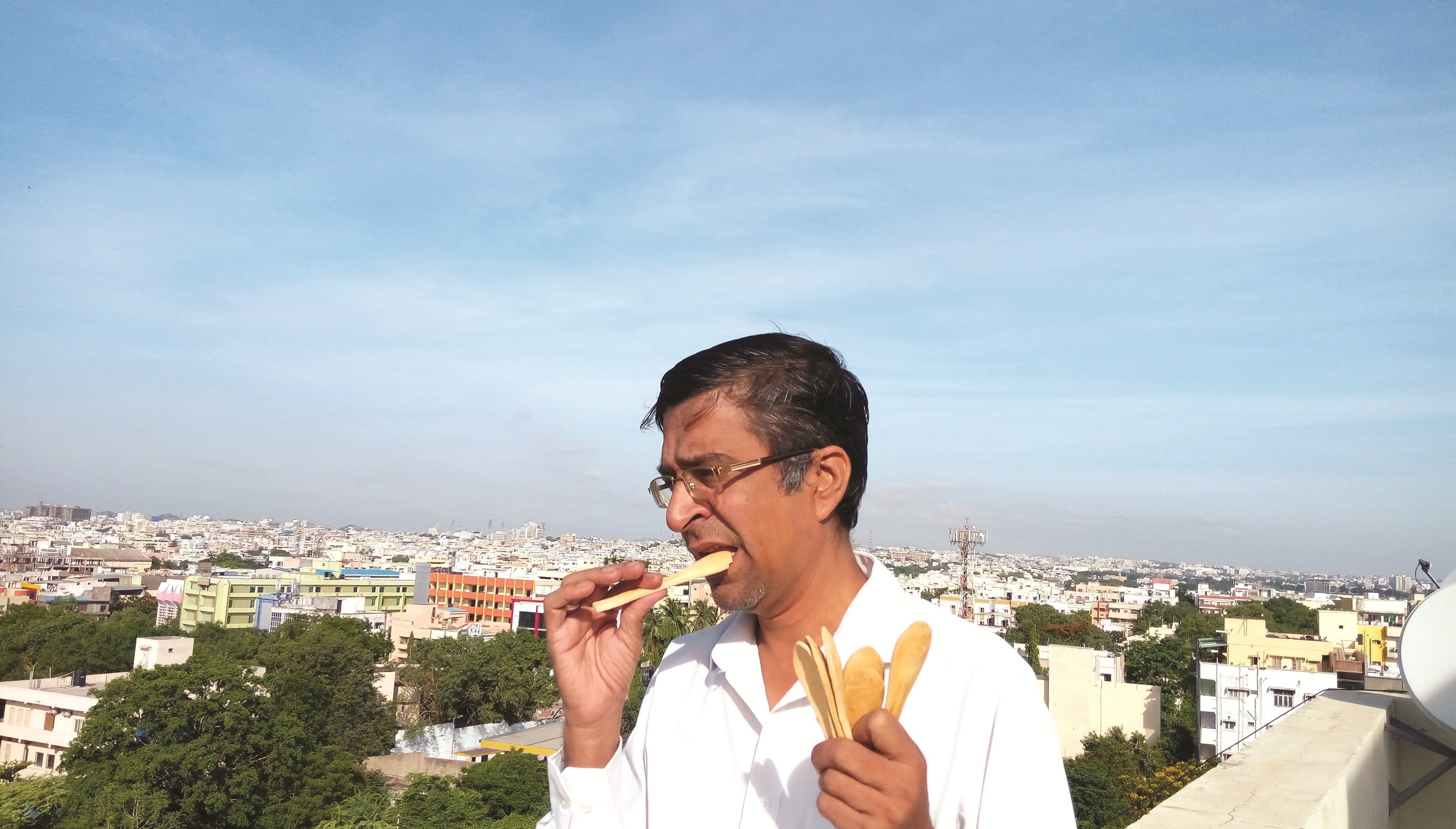Now Eat What You Eat With Founder and Managing Director of Hyderabad-based edible cutlery maker Bakeys Foods, Peesapaty shares the wackiness of his idea with Entrepreneur.
By Sandeep Soni
Opinions expressed by Entrepreneur contributors are their own.
You're reading Entrepreneur India, an international franchise of Entrepreneur Media.

It may sound like a scene out of the Mad Hatter's tea party but now people can actually eat their food and then their cutlery for dessert! The man behind edible cutlery is Narayana Peespaty, former scientist at the International Crop Research Institute for Semi-Arid Tropics. Founder and Managing Director of Hyderabad-based edible cutlery maker Bakeys Foods, Peesapaty shares the wackiness of his idea with Entrepreneur.

Killing Two Birds With One Stone
What motivated me in 2007 towards making edible cutlery was drastic depletion of India's groundwater levels, from 130 ft to around 500 ft between 2000 and 2007. One of the prime reasons I realized for that was tremendous amount of rice cultivation in India which is a water guzzling crop and consumes lot of power, and hence it puts lot of stress on the available groundwater. Another reason why I thought of edible cutlery was a massive 300 million plastic spoons and other cutlery being used in India everyday which is harmful for the human body because of toxins and carcinogens present in it. So it was important to increase the usage of other crops like millets which uses less water for irrigation. I tried various types of millets and Sorghum (Jowar) appeared to be the best one to make edible cutlery after multiple testing. Sorghum is also good for diabetes, and cholesterol problems.
Spooning Out Health
As opposed to toxic plastics, the spoon contains Carom (Ajwain), Cumin(Jeera), Pepper, and salt. There are no food preservatives, additives except the taste makers and hence they have more than three years of shelf life, by dehydrating it. It doesn't turn soggy when used for very hot or cold food until left in it for 10 minutes or more. It can be used multiple times unless someone eats with it, and gets decomposed in five-seven days in wet soil if insects and animals don't eat it. The first comment I got was that it is edible but not eatable as it was very hard to eat. So over the years I worked on reducing its hardness. People today still complain of it being little hard but at the end it has to be that way otherwise it won't serve the purpose of a cutlery. This is also because in India people prefer softer food than something crunchy.
Building up the Market
The opportunity is extremely vast globally. For a population of 400 million if 10 spoons are used per month by each person, it comes to around 4 billion spoons. It is cheaper than bio-degradable and food-grade plastic. Many large hotels and restaurants have asked for samples of our spoons as a result of their customers' feedback of edible cutleries available in the market when they were served food with plastic spoons. From current Rs 2 per spoon excluding transportation charges, I have developed a technology to bring it down to Re 1. We are only competing with plastic disposables, not steel, and our marketing is through social media while sale is through online channel.
Reaping the Rewards
I sold everything that I had including the flat where I am living in as bank collateral. I had two flats in Baroda and Hyderabad also that I sold. The bank already put ourcurrent flat under auction twice but didn't get bidders. Before third auctioning when orders for spoons started pouring in, the bank called off the auction. Today I have already got back whatever I spent and I am looking to cross Rs 5 crore in sales this year.
(Originally published in Entrepreneur India magazine's July 2016 edition)













